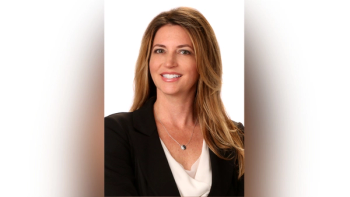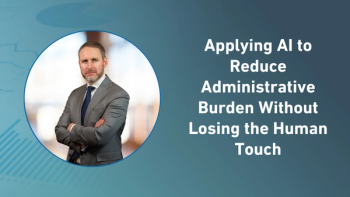
Why We Should Talk to Patients Who Drop Out of Clinical Trials
Sandy Chase focuses on the voice of the patient and their experience after not completing a clinical trial.
Like so many of my colleagues in the world of clinical patient recruitment and retention, I spend a lot of time contemplating data points. Key performance indicators. Screen fail rates. Randomization numbers. Retention rates (and their dubious sibling, drop-out rates). I’ve learned that data points which surface predictably in recap decks, often paint an unfinished picture.
Of all the data points available to us, my mind frequently drifts to an unnecessarily elusive nugget of key information: the voice of the patient. As the practice of patient centricity gains traction, patients are sometimes asked for feedback on draft protocols. Clinical trial simulations can provide input on study design and recruitment, but sponsors rarely seek to understand the experience of the patients actually taking part in their clinical trials. Too often, patients vote with their feet by dropping out before completing a study. Which leads me to wonder:
What if we asked every patient who doesn’t complete a clinical trial about their experience?
About why they dropped out. About what could have been designed differently to better suit them. About what barriers prevented them from seeing it through. Was the time commitment too rigorous? Was the distance too far? Was the protocol too demanding? Too confusing?
I’m lucky to work at an organization that sees value in asking “what if” and possesses the research capability to fully explore the question to everyone’s benefit. What we learned when we started interviewing patients at the end of their study experience was valuable enough to adopt as a permanent part of our company’s practice.
Among the insights gained from talking to patients about their experience were:
1. When it comes to retention, the voice of the patient should be THE data point. No offense to all other metrics, which we know occupy a crucial place at the recap table, but the voice of the patient reveals insights that can make or break study retention. While it’s important to hear from those who complete the study, it’s critical to talk to those who drop out. For example, patients enrolled in a study that involves eight-hour appointments deserve a meal. Or at least a snack, after a required 8-hour fast. And you may learn that when patients are armed with information and coping strategies for expected side effects before they randomize, they are less likely to drop out if those side effects occur.
2. Tote bags are not a retention strategy. And speaking of retention, giving patients tchotchkes like tote bags and sudoku books are nice gestures, but these are not retention strategies. When we value a patient-centered approach to clinical trials, we are cognizant that retention is about the patient experience from the first phone call, to clear written instructions on exactly when and how to take their medication. When asked why she dropped, a patient may tell us she was too embarrassed to ask if the pill for vaginal dryness was supposed to be taken by mouth or inserted vaginally. So while a tote bag to carry that medication home in is important, learning from a patient who dropped out is critical.
3. Patients will tell us how they view their disease. This is important to developing studies that meet patients’ wants and needs. We may understand, for example, that gout is a chronic disease requiring long-term management. But patients who view gout as an episodic disease that only needs attention during flares may not understand why they need to take medication and fill out a pain diary every day-especially when they feel fine. By understanding their point of view, we can help them connect the dots between study requirements and their condition. That may be the factor that keeps them in the study, even though they hate filling out a diary.
Listening to patients through exit interviews and surveys isn’t the only data point we need to help our sponsors design studies that patients want to join and, importantly, complete.
But what we don’t need are blind assumptions about the very patients who are offering their time, their health, and their bodies for the benefit of future therapies and generations. They still have voices. We just need to ask and listen to them.
Sandy Chase, VP of Clinical Trial Insights & Experience, Continuum Clinical
Newsletter
Stay current in clinical research with Applied Clinical Trials, providing expert insights, regulatory updates, and practical strategies for successful clinical trial design and execution.




